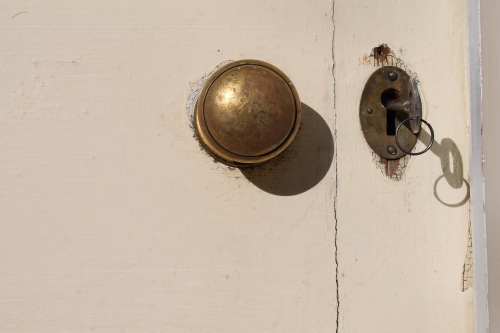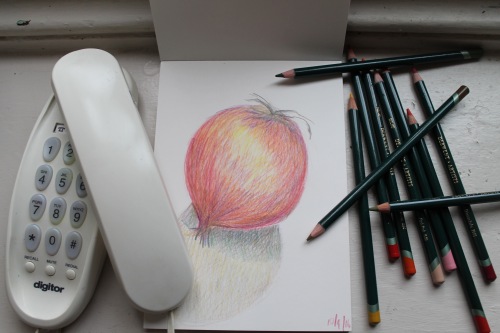domesticity and me

‘A perfectly-kept house is a sign of a misspent life’. Growing up I never questioned these words by English writer Rose Macauley. Like all my girlfriends I assumed that caring about housekeeping was to avoid the real challenges of life. Domestic life was a tangle of repetitive, unfulfilling tasks that full-time work was designed to release women from – this much we knew. There was nothing actually wrong with housekeeping and cooking and growing things. They were just much less important than staying abreast of work demands, travelling to far-flung places and having a five-year plan.
And so began my secret life. Even as a teenager, making my bedroom attractive gave me especial pleasure. However this pleasure was tinged with the fear that it was the wrong kind of thing to be keen on. Shouldn’t I be more interested in politics, business and my own career, than in painting my bedroom and taking up the carpet? However clearly I wasn’t the only one. Even in the eighties the world was awash with how-to books on domesticity, magazines boasting stunningly svelte homes, and home management experts who got something over and above money from clearing out clients’ cupboards.
But then I moved overseas and began what I thought of as my real life. Moving through my twenties, each year more focused on a career in publishing and higher education, I was giving over a chunk of each day to cooking, organising, errands and shopping – to housekeeping in fact. This involved time, imagination and effort. But it was time, imagination and effort that I wouldn’t credit. Something in me refused to recognise all my big and small efforts to keep my home life pleasant, as at all related to the kind of work that I did in an office.
In those days I never imagined that bringing back a gleaming kitchen, after a long dinner, would one day give me a moment of pride. Even into my thirties I had no inkling that domestic rituals like flowers on the windowsill, a casserole simmering, would ever come to feel like an achievement. But then in my thirties I started a family, and overnight my love of domesticity was awakened. From one day to the next I stopped fantasising that someone else might look after me, and instead I got on with looking after us all. Overnight I embraced the imaginative and practical efforts that a family home demands. I no longer felt in conflict over the value of domesticity. Housekeeping no longer felt like a waste of my time. If I was to be at home with two small children, for much but not all of the time, I wanted to be able to look round our home around and feel glad to be there.
I am no domestic romantic and this was no happily ever after. I knew from the start why I found housekeeping so demanding. It was demanding to the extent that it meant caring about things which ultimately I didn’t care about. (Was that bottle of milk in the fridge still fresh? And where was my son’s other shoe?). And so I knew from the start that if I wasn’t going to fall into periodic resentments and moanings that I would have to be a bit clever.
If I was to be true to the ambitions that meant so much to me, it was in my interest to keep our home life running smoothly. Mainly because when I didn’t I had neither time nor energy left, either side of daily practicalities, to do the kind of things that made being at home feel worthwhile (playing music, planning meals, planting from seed, baking a cake, picking herbs from near the back door, yoga before breakfast). Which is a roundabout way of saying that having ambitions for my domestic life, plus the courage and energy to realise them, soon became a pressing issue once I found myself housekeeping for a family of four in an old house with a largeish garden plus an active dog.
The bottom line is that I never wanted for my home life just to work. I didn’t want just to cope domestically. I wanted a buoyancy in my home life. I wanted it to be the backbone of my life. Ultimately for it to help me feel whole. That said I’ve never expected it to be everything. I’ve been a wife, mother and ex-psychotherapist for long enough to know that focusing solely on domesticity was to be one step short of madness. (‘Every mother is mad in her own way’, wrote French writer Marguerite Duras, ‘because being a mother is a form of madness’.) Nonetheless, and I think more importantly, I now look to my home life to strengthen and ground me – a feeling confirmed by two recent deaths in my family. In my mind the paediatrician Donald Winnicott was right when he said that home is where we start from.
These days I just accept that an attractive, welcoming and well-run home is important to me. It’s no longer a debate that I feel I have to have. I don’t worry that the time and energy I spend keeping it that way is misspent. Flowers on the windowsill and stock on the stove are both things I openly value. Details, the little things, matter to me – often giving me more satisfaction than the big things. Equally the short term is also the long term – if I care about the atmosphere in my home today I feel sure I’ll care about it in ten years’ time.
I want big things as well. Now that my kids are taller than me, and my marriage is pulling at the seams, my ambitions are more worldly. Nonetheless I’m still my most grounded, at ease and free, when caught up doing things at home. I’m not set on perfection – having a family put paid to living in a magazine. And I’ll always be a good but not great cook – I cook because I love my family and want us to eat well, not because I love cooking. Even so the daily circus of housekeeping now feels like a personal accomplishment, rather than a mere competence. And no less an act of love.

